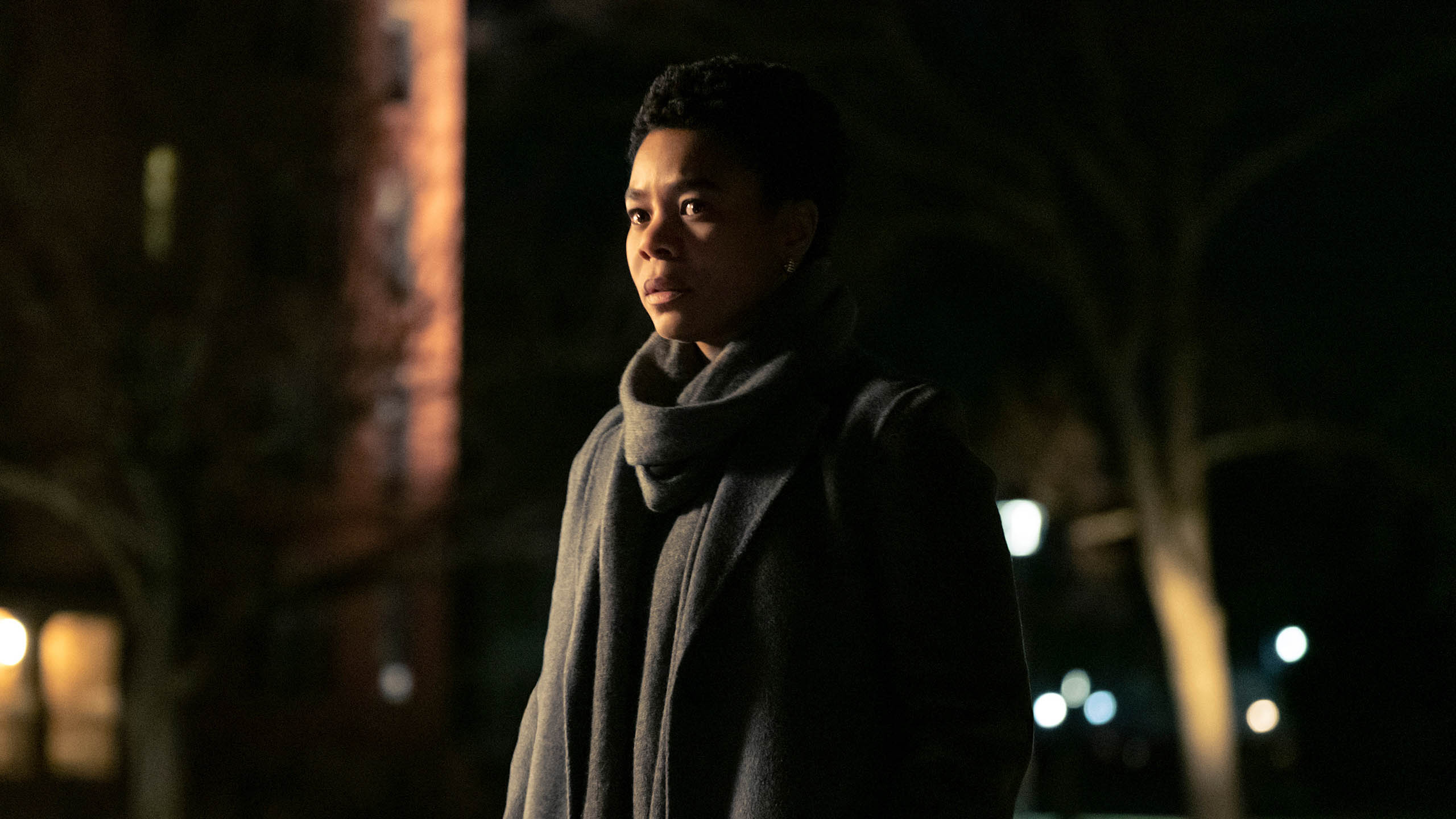
The 2017 release of Get Out felt like such an event. A true cultural reset where a genre that traditionally has been known for ridding itself of its black characters before you got halfway through your bucket of popcorn saw a smart, well made, and socially relevant and resonant film written, directed, and starring black men capture the cultural zeitgeist and Oscar gold. Its success inspired a wave of socially conscious horror and a lane for black filmmakers to express their creativity and comment on the society around them. Four years later, it’s starting to feel like the movement has gone from creative firestorm to simply…a dumpster fire. It feels old. It feels stale. It feels exploitative. It feels uncreative. The blame for this in no way lies solely at the feet of the film that is the subject of this review. However, it does feel like the moment where this particular well has run dry.
Master places us on the campus of an elite New England university as three women navigate their paths working at the school. Gail Bishop (Regina Hall) has just been instated as “Master,” a dean of students while first-year student Jasmine Moore (Zoe Renee) tries to fit in in new surroundings with a culture different from her own. Biracial literature professor Liv Beckman (Amber Gray) collides with colleagues who question her right to belong. As the trio deals with the social issues of the university, they’re haunted by a mysterious black student from the school’s past that may effect their present.
Master feels like another film off of the post-Get Out, post-Trump progressive black and indigenous persons of color creative assembly line that can best be described as “the real horror is American racism/white people!” horror film. In this modern subgenre, the treatment and “micro aggressions” that black people experience in majority white spaces are personified by whatever terrifying person, thing, or group is chasing them as they simultaneously deal with being black in America. The existence of multiple versions of the same thing isn’t necessarily a bad thing in creative industries, as we’ve recently seen. Creative, innovative thinkers can find new ways and avenues to tell stories that you weren’t aware were possible until you’ve seen them. The issue with this modern subgenre of black horror is that these new perspectives aren’t making it to the big screen. Instead, we’re getting increasingly poor facsimiles of the initial films that started the wave and not new twists that say new things or say the old things in new ways we haven’t seen. From a filmmaking standpoint, the same conclusions are reached as other films (being black and facing racism, whether overt or subtle, from white people is a drain) utilizing the same allegory or metaphor as mentioned above. A reductive viewing experience that is grating in its repetitiveness.
In terms of the larger feeling it generates in viewers, particularly black ones, it is this repetitiveness that contributes to it all feeling condescending and defeating, a declaration that being black is purely a struggle and is full of nothing but demoralizing, life threatening experiences with no room for joy, triumph, success, or any of the things that makes life worth living. The pessimistic worldview would be easy to swallow if the films felt poignant and original but alas, they do not. Master evoking these feelings is a shame, because its actors do try their best with the material, most notably the long underrated Regina Hall who gets to show off her dramatic chops and young Zoe Renee who does well in her portrayal of a young black woman from modest origins struggling to realize her potential in a foreign environment that doesn’t recognize her potential. Despite their abilities, the performances from the actors aren’t able to overcome how rote the film feels.
Elevating new voices and perspectives in cinema is always welcome and arguably needed as multiplexes become inundated with comic book blockbusters. But it is equally important that these perspectives be fresh and original and not cynical cash-ins on what has come before. Now feels like the moment for producers and studios to go back to the drawing board for something new.
Image: Amazon Studios

